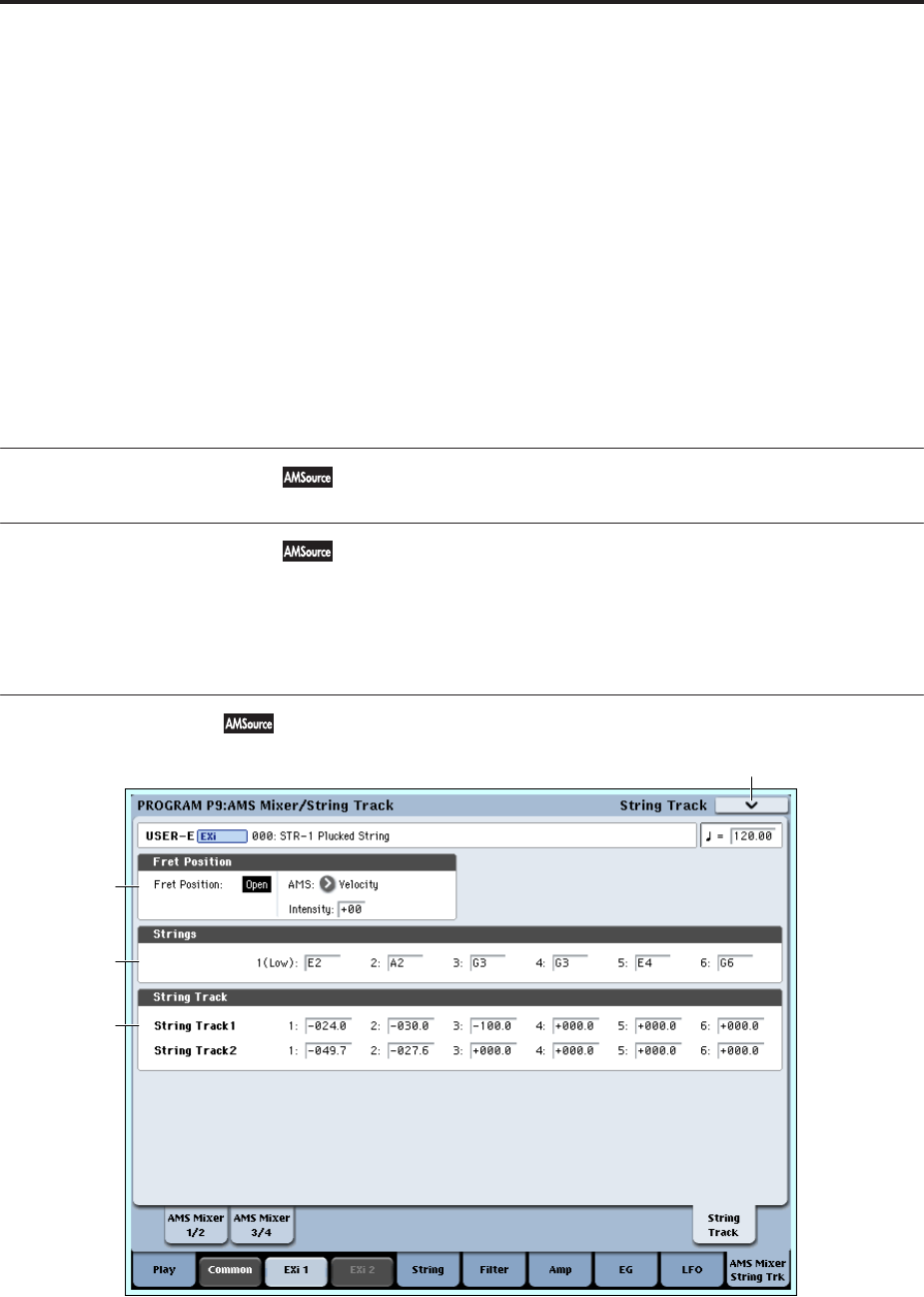
EXi: STR-1 Plucked String
276
Program P9: AMS Mixers and String Track
AMS Mixers
The AMS Mixers combine two AMS sources into one,
or process an AMS source to make it into something
new.
For instance, they can add two AMS sources together,
or use one AMS source to scale the amount of another.
You can also use them to modify the response of
realtime controllers.
The AMS Mixer outputs appear in the list of AMS
sources, just like other controllers.
This also means that the original, unmodified inputs to
the AMS Mixers are still available as well. For instance,
if you use Aftertouch as an input to a AMS Mixer, you
can use the processed version of the Aftertouch to
control one AMS destination, and the original version
to control another.
Finally, you can cascade the AMS Mixers together–for
instance, you can use AMS Mixer 1 as an input to AMS
Mixer 2.
String Track
The String Track tracking generators allow you to
scale parameters based on the string on which the note
is played. This helps to model the sonic characteristics
of the different strings, such as different materials (as
with the nylon and steel strings of an acoustic guitar),
different gauges of strings, and so on.
9-1: AMS Mixers 1-2
9-2: AMS Mixers 3-4
The STR-1’s AMS Mixers are identical to those of the
AL-1 (although the STR-1 has four, to the AL-1’s two).
For detailed explanations, please see “9–1: AMS
Mixer,” on page 209.
9-9: String Track
Multi-stringed instruments, such as guitars, often
include strings of different thicknesses, or strings
created using different techniques or materials. For
instance, strings may be:
• Round-wound, flat-wound, or un-wound
• Steel, brass, copper, or nylon
• Thicker (heavy-gauge) or thinner (light-gauge)
For instance, electric guitars may use wound low
strings along with un-wound high strings. Similarly,
classical guitars generally use nylon treble strings
along with wound-metal bass strings.
9–9PMC
9–9a
9–9b
9–9c


















